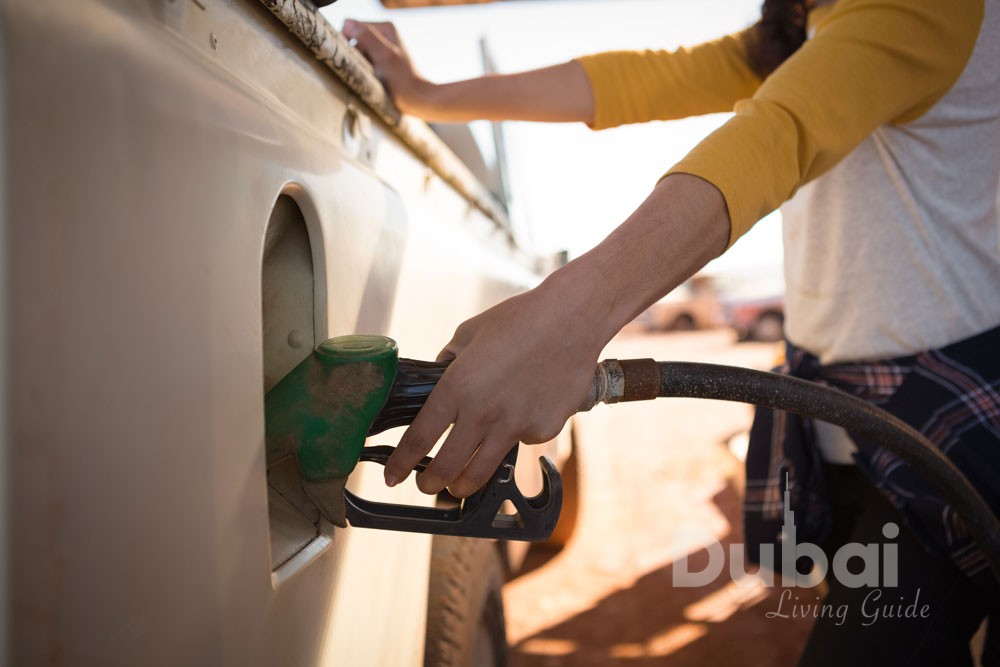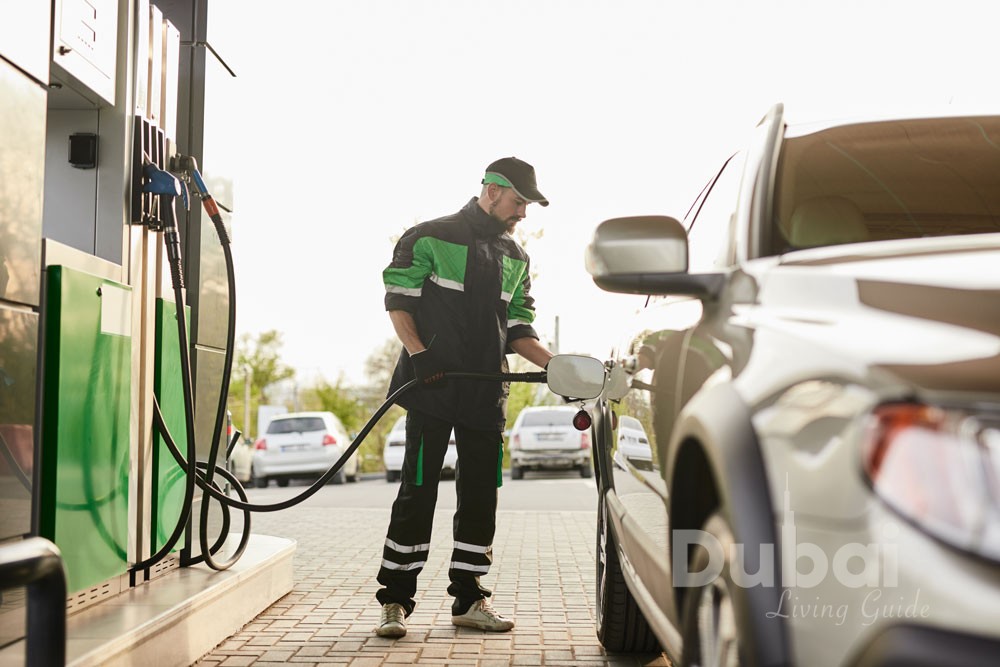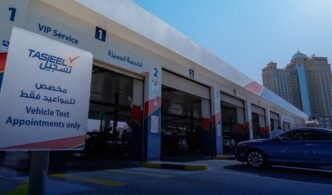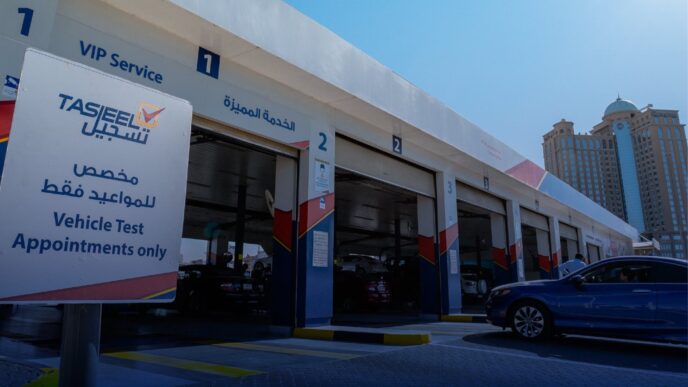Living in the United Arab Emirates for years, I have observed how petrol prices affect the lives of people and communities in the country. Through this blog post, I will explain in detail the structure of a gasoline system in the UAE, which, consequently, allows you to comprehend the connections between the gasoline prices and the determinants of our economy.
The UAE Fuel Pricing System: An Overview

In August 2015, the government of the UAE decided to impose a new fuel pricing system on consumers. This pricing method involves the linkage of UAE oil prices and the general oil price in the world. The solution is to change the prices on a monthly basis and then compute a price differential based on the average global price of the month.
These people include the Fuel Price Committee, which has members of the Ministry of Energy, oil companies, and other relevant authorities, who, at the end of every month, meet to clarify and set the prices that have to be set. The committee takes into account several key factors to features such as consumer-friendly pricing, to avoid being a burden to the country’s economy.
Factors Influencing Petrol Prices in the UAE
Several elements affect the prices of petrol products in the United Arab Emirates:
1. Global Oil Prices
The main determinant of the petrol price in the UAE is the global oil market. As a fuel-producing country, UAE’s petrol prices go hand in hand with the international crude price. However, there are times when the cost of fuel rises due to high global oil prices, and so our local petrol prices also go up, and vice versa.
2. Production Costs
For instance, the cost of getting, turning, and supplying gas which will influence the expensiveness of its prices. These costs may vary based on the improvement in technology, labor costs, and infrastructure enhancements.
3. Government Subsidies
On the other hand, the UAE administration was historically a huge sponsor of fuel prices in the country. However, with the installation of the new pricing system in 2015, these subsidies have been gradually decreased or cut off. This action was aimed to change the citizens’ behavior towards the use of energy and to reduce the financial burden on the government.
4. Taxes and Fees
Even though the UAE does not have a taxation system like many countries, there are a number of taxes and fees imposed on the prices of petrol. Examples of these are the value-added tax (VAT) that was launched in 2018 and other administrative charges.
5. Currency Exchange Rates
The international trade of oil in the US dollar is one reason why the local petrol prices can be affected by the changes of the UAE dirham versus the US dollar exchange rate.
Types of Petrol Available in the UAE
There are different types of gasoline available in the country each with a different price point:
1. Special 95
This is the commonly used gasoline in the UAE and is suitable for most vehicles. It is the optimal combination of performance and economy.
2. Super 98
Super 98 is a fuel that has a higher octane rating specifically made for high-performance vehicles. Generally, it is more expensive than Special 95.
3. E-Plus 91
This type is the most cost-effective and can be used by lower-compression type engines like those used in older vehicles.
4. Diesel
Though it is not as conventional as a means of transportation among individuals as in the case of diesel cars and trucks, it is largely used in the commercial and industrial sectors.
Historical Trends in UAE Petrol Prices

Since the new price system started, there have been various trends in fuel prices of the Emirates:
2015-2016: Initial Adjustment Period
During the first year of the implementation of the new system, the prices quickly fluctuated as both the demand factors and the market structures were adjusting to the transform. A few months of an uptrend and the prices were stable.
2017-2019: Gradual Increase
In what was seen as a prolonged period of increase in petrol prices, there were evidence of parallel market conditions in relation to the oil market.—both production and exportation of oil out of the Middle East had been reduced because of the oil prices
2020: COVID-19 Impact
Petrol products are one of the many sectors that have been hit hard by the pandemic. However, in May 2020, we saw that the price slump was particularly the case with petrol.
2021-Present: Recovery and Fluctuations
When the global economy started to pick up again, there was an increase in oil demand which, in turn, pushed petrol prices upward. However, we still have regular fluctuations every month due to global market conditions.
Impact of Petrol Prices on the UAE Economy
Gasoline rates have a deep influence on many areas of our economy:
1. Consumer Spending
The increased petrol price does not leave the household budget without any effect. We might be forced to spend less in other sectors to be able to use the means of transport.
2. Inflation
Increasing fuel costs may also lead to escalating prices of goods and services, thus, causing inflation within the economy.
3. Business Operations
Couriers and delivery companies, which are the most affected by transportation costs, might find their costs increasing and decreasing in the same direction of petrol prices movement.
4. Government Revenue
Being a major oil producer, the revenue of the UAE government greatly depends on oil prices. If the global oil prices increase, the UAE will also get bigger profits which can lead to the realization of more government projects and services.
Strategies for Consumers to Manage Petrol Costs
As inhabitants of the UAE, we have several methods of keeping our gasoline expenditures down, for instance:
1. Fuel-Efficient Vehicles
Look at purchasing a vehicle with high fuel efficiency if it doesn’t help much with the gasoline consumption as a whole.
2. Carpooling
Sharing transportation by colleagues or friends and dividing forthwith possible costs is a good way to reduce a person’s share.
3. Public Transportation
Riding the UAE’s copious offerings in the line of buses and metros can play a role in the quest for balance.
4. Smart Driving Habits
Opt for energy-efficient driving techniques, such as driving at a steady speed and avoiding rapid acceleration or braking.
5. Regular Vehicle Maintenance
Care for your vehicle on a regular basis to keep the engine and the other parts operating as efficiently as possible.
Future Outlook for Petrol Prices in the UAE
Predicting future petrol prices remains a tough job because of the numerous factors that enter into play. Yet, we can look into some factors that might affect future laissez-faire:
1. Global Oil Market
Mostly, the global oil market is and will continue to be the one that makes the biggest impact on the fuel prices in the UAE. The geopolitical turmoil, the economic climate of the world, and the supply-demand dynamics all together impact oil prices.
2. Renewable Energy Transition
With the UAE and other states investing more and more in renewable energy sources, this may lead to a long-term decline in the oil demand and as a result, fire gasoline prices down.
3. Economic Recovery
In fact, the power of worldwide economic recovery from the COVID-19 pandemic is likely to have a cyclical influence on oil demand and then prices.
4. Government Policies
If there are any modifications to the fuel subsidies or taxations the administration can definitely have such an effect on the possible trajectory of the petrol prices in the UAE.
Conclusion

The complete comprehension of petrol prices in the UAE is a matter of great consequence not only to residents but also to enterprises. It is evident that petrol prices are the result of interrelations among various global and local causes which are regularly changing. By learning about these influences and the valuation mechanism, we can make the right plans ahead of the peaks and troughs in petrol prices.
We cannot control international oil prices or the policies of the governments, but we can still handle our fuel consumption and expenditure. It is through individual actions of so many people that we can curb the ill effects of the price hike improvement, learning, and conscious planning play primary roles.
Even though the UAE’s economy has reached a point in development and diversification where fuel prices might not play the same roles in the daily lives of the people, they will still remain an essential economic indicator and continue to be a significant factor in the financial conditions of the households and businesses.
To achieve a full sense of readiness, it is best to keep oneself updated and modify one’s habits to fit the changes that the future brings in terms of petrol prices in the UAE.
Latest Nissan Car Listings in the UAE























